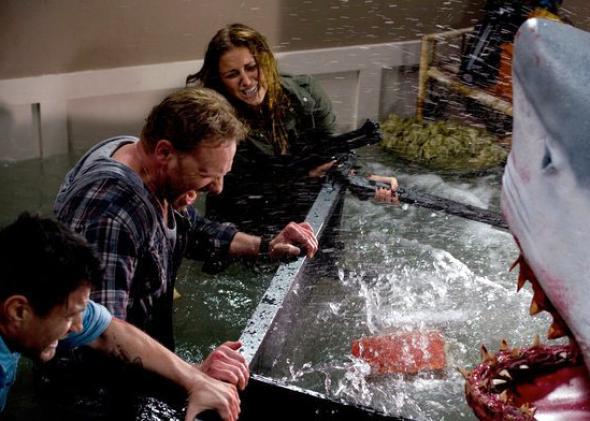Dear Willa, June, Mo:
Is it “inside baseball” to talk about how recapping and streaming and bingeing have changed the practice of TV criticism? Probably. But if I may break the fourth wall and address our larger group of readers (assumes Francis Underwood drawl): “Inside baseball? My dear friends, you have willingly submitted to reading the email correspondence of television critics on the Internet. You are not merely already inside the baseball, you are within its rubber-coated core.”
Mo, I think the idea of a critic as a guide to good stuff is valuable, even to me. But I also think a TV critic has got to be part humor columnist, part social commentator, part technology writer, part arguer-without-portfolio. In the age of specialists, it’s one of the few beats where it really helps to be a generalist, a dilettante even. TV, even more than other popular art, is a kind of real-time monitor of what people care about—sometimes that’s Walter White, sometimes it’s Paula Deen.
I never did weekly reviews in Sepinwallian proportions, but a few years ago I did much more than I do now: Lost, Mad Men, NBC’s Thursday comedy block, Big Love, Glee, The Shield. … Last year, I did Game of Thrones and Breaking Bad only. I decided to zig where a lot of TV writing has zagged, mainly because it’s zagged so damn hard in that direction. Sites like the A.V. Club and Vulture are like honeycombs of industrious TV-processing. And I read them! The A.V. Club is the answer to anyone’s claim that all the Internet wants is listicles.
But I don’t think we need a lot more of that, especially one writer trying to John Henry it against those many-handed steam drills. You get drained, you get frazzled, and even the most rewarding show will become a chore some weeks. (Also, as June suggests, it biases the conversation toward certain kinds of shows, especially serial drama. Even with comedies I loved, like 2013’s departed 30 Rock, there often isn’t much to say week-to-week besides, “Remember this line? And that one?”) For Mad Men, I decided I’d just write when I had something to say that hadn’t been said—sometimes entire days after Sunday!—so I ended up writing fewer pieces, but ones that I liked better.
In fact, I write fewer and fewer pieces I’d call straight reviews. I sometimes go to my older son’s middle school to talk about writing, and one thing I always harp on is that the least interesting thing a critic does is to say whether something’s good or bad. Sure, it’s part of the job. But there are billions of those opinions. What’s satisfying is to drill down into a show and find what there is to care about—for good, or bad, or neither. What does it say about how we live today, or how we’ve always lived? (Or died: From Time of Death to Getting On, this was a pretty good year for memento mori TV.)
Really, the straight-ahead review I enjoyed writing most this year was for Sharknado. And even that was half about something that’s nipping around the edges of our whole conversation here: how social media has influenced the way we consume, enjoy, discuss, and, yes, sell television. Sharknado’s ratings were not actually that enormous, but on my Twitter feed—not just the TV critics, but journalists, politicians, celebrities—that night was like a national holiday. It was like this ingeniously crafted social-media ride. It fell just the right side of trying-too-hard-to-be-camp, and as I watched Ian Ziering chainsaw his way out of a shark that just fell from the sky, being able to share in the experiences of others was almost a required accessory. It was like 3-D glasses, except it actually improved the experience.
Now is every TV show—or anything—necessarily improved by having your own customized RiffTrax accompanying it? No; there’s something to be said for letting yourself get immersed in anything sometimes (and not just “quality” TV). And to get insidery again, we all have to guard against the influence of hanging out on Twitter, where the creators of shows—Dan Harmon, Shonda Rhimes, Kurt Sutter—are active and vocal. (And friendly encounters are just as treacherous as hostile ones. The rock stars are not your friends!)
RTing my own praise,
Jim
